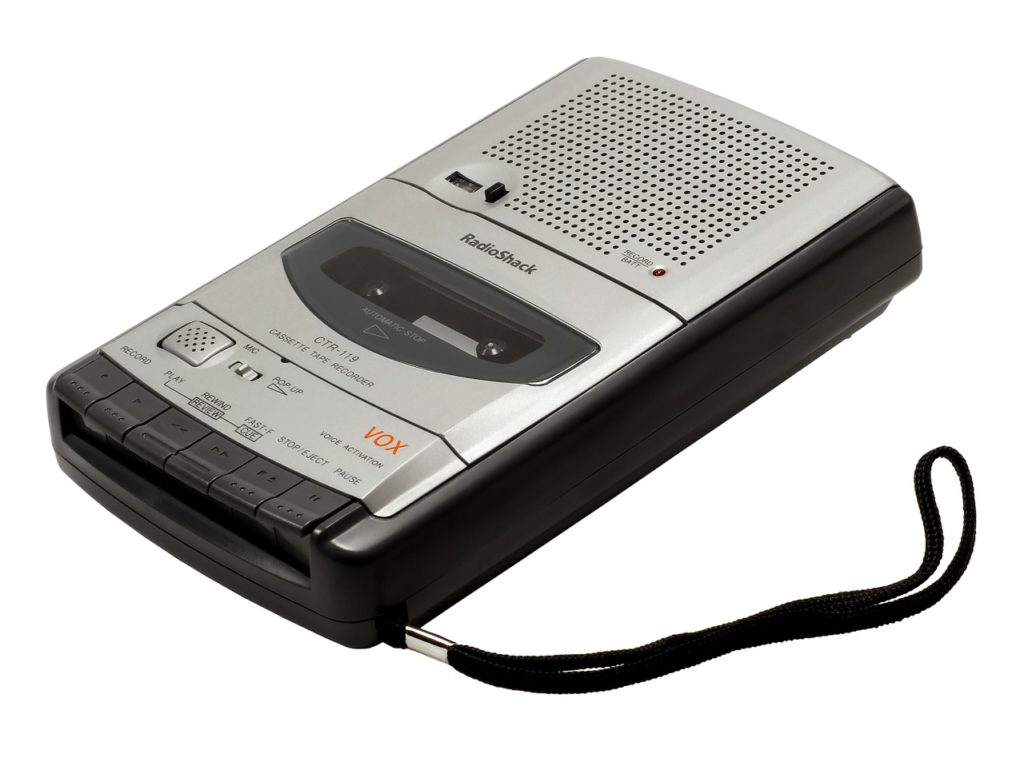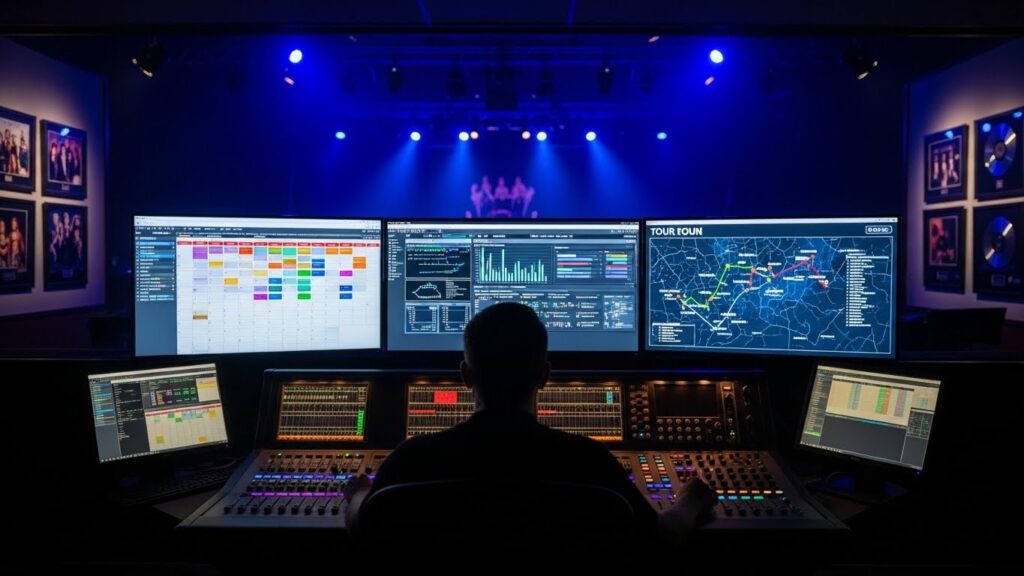
How Automation Is Influencing the Future of Event Management
The event management industry is due for a serious upgrade. If you’re still running your live music business through spreadsheets, endless emails, and “quick” phone calls, you’re stuck in a workflow that’s about as current as a vintage mixtape. While these methods technically work, they’re costing you something invaluable: time. In fact, event organizers spend an average of 34% of their workday on repetitive administrative tasks that could be automated with the right event management solution.
Let’s be honest—booking talent, coordinating teams, and tracking financials shouldn’t feel like you’re juggling while riding a unicycle. The creative energy that drew you to this industry gets buried under mundane tasks and manual data entry. When was the last time you actually had the bandwidth to focus on creating extraordinary live experiences instead of chasing down details?
The good news? The live music industry is finally catching up to the digital revolution. Just as smartphones transformed how we communicate, modern event management software is revolutionizing how venues, promoters, and agencies operate. It’s time to explore how live music events automation is changing the game for live music professionals—letting them get back to what matters most: the music.
Live Events Music Automation: Technology to the Rescue
Just as most industries have latched on to the technology revolution, so too has the event management industry (finally). Spreadsheets and email are not technology. Not anymore, anyway. Today, there are options. There is this remarkable little thing called event management software, and it’s changing how event organizers, venue organizers, and promoters work.
Event organizers don’t need another shiny app to toss in their already-overstuffed toolbox. There are more than enough “fix-all” promises out there. What they really need is a solution that brings everything together—a one-stop shop for managing the chaos. Think about what the smartphone did to the handheld calculator. It didn’t just upgrade it; it made it obsolete. That’s the kind of game-changer we’re talking about here.
This isn’t just about following tech trends—it’s about survival in an industry that’s getting more complex by the day. Venues and promoters who’ve made the switch are seeing their teams spend less time wrestling with spreadsheets and more time crushing it at what they do best. A-s profit margins get tighter and audience expectations soar, having streamlined systems isn’t just nice to have—it’s becoming as essential as a solid sound system.
Today, approximately 91% of Americans own smartphones. It changed how we do everything – except for event management. Thankfully, event management software has come to the rescue.
How Automated Systems Are Streamlining Event Management
Not all event management software is created equal. Sure, they might offer different bells and whistles, but the real game-changer is automation. Forget just “streamlining”—we’re talking about transforming how you handle live events from the ground up.
Think about your current setup. You’re probably juggling a calendar, a way to manage communications, a tool to build offers, and something to track expenses and earnings. Jumping between these systems sucks up your time and energy. And let’s be real: manually entering data across platforms isn’t just tedious—it’s a ticking time bomb for mistakes.
That’s where automation for live music events takes the spotlight. Automated systems do the heavy lifting for you. They sync data, cut out repetitive tasks, and let your tools work together seamlessly, all without you breaking a sweat. No more logging into multiple platforms or copying and pasting the same info a dozen times. With everything running on autopilot, you can shift your focus to what really matters—creating unforgettable live music experiences.
Stellar Functions and Features to Look for in Event Management Software
Here’s the deal: not all event management software gets it right. Sure, most offer the basics—communication tools, calendars, and task management—but when it comes to the real heavy lifting, like financials, offer generation, or settlement capabilities, many fall flat. And let’s face it: if your software isn’t handling the hard stuff, is it really saving you time?
Automate Your Financials
Revenue and expense tracking isn’t just about tallying receipts and invoices. It’s about knowing where your money is coming from, where it’s going, and how to make more of it. You’re in this business to make a profit, so you need real-time visibility into the financial health of your events.
Look for features like:
- Expense & Revenue Tracking: Know what’s being spent and earned in real time.
- Budget & Forecasting Tools: Plan smarter by using forward-looking analytics.
- Settlement Generation: Tie up loose ends faster with automated calculations and payouts.
With automation for live music events, you can let the system handle the math while you focus on the music.
Analytics That Drive Decisions
Rather than just numbers on a screen, data is your roadmap to smarter decisions. You need tools that go beyond basic reporting, giving you both historical insights and predictive analytics. Imagine knowing not just how your last event performed but also forecasting your next one with confidence.
Key features to prioritize:
- Comprehensive Reporting: Break down your event’s performance in detail.
- Forward-Looking Insights: Use data to anticipate revenue, expenses, and more.
Streamline Collaboration
Your team doesn’t have time to fumble around with outdated tools or redundant systems. A fully automated platform ties everything together—tasks, documents, and communication—so everyone stays on the same page.
Must-haves include:
- Advanced Hold Management: Keep schedules locked and loaded without the chaos.
- Task & Collaboration Tools: Assign, manage, and track progress with ease.
- Document Management: Centralize contracts, offers, and other key files.
The Power of a Unified System
These are the tools you need to manage your ecosystem every single day. When all these features come together in one automated platform, you work smarter, faster, and with way less stress. And the best part? Turning a profit becomes second nature. This is what live music events automation is all about: giving you the freedom to focus on delivering incredible experiences.
Lower Your Risk, Increase Your Profitability
Event management software doesn’t just make your job easier—it makes it safer, more efficient, and way more profitable. When you’re juggling a dozen different systems, mistakes are almost inevitable. Emails get buried, tasks slip through the cracks, and one wrong move can snowball into chaos for your event and your reputation.
That’s where automation flips the script. With everything in one place, you gain crystal-clear visibility into your entire operation. No more caffeine-fueled data entry marathons or frantic inbox searches. Automated reminders keep you on top of deadlines, while conversations and tasks are tracked and categorized without you lifting a finger. Revenue and expenses? Filterable, detailed, and updated in real time. And with mobile-friendly tools, you can lock in holds or check offer statuses with a single tap.
The real magic? When your workflow is this smooth, you free up time to book more shows. More shows mean more money—and more chances to do what you love. Ready to leave the chaos behind? Prism’s software is built specifically for the live music industry, with automation features like advanced hold management, real-time financial tracking, and streamlined settlement tools designed to handle the unique demands of your business. Get started today and let automation handle the grind so you can get back to the music.

Matt Ford is the founder and CEO of Prism.fm, an Austin-based software company revolutionizing live music event management. With a background in entrepreneurship and a degree from the University of Wisconsin-Madison School of Business, Ford combined his self-taught coding skills with firsthand experience as a concert promoter to address the inefficiencies he observed in the industry. In 2018, he launched Prism.fm, an all-in-one platform designed to streamline operations for venues, promoters, and agencies by replacing cumbersome spreadsheets with integrated tools for booking, financial tracking, and contract management. Under his leadership, Prism.fm has grown significantly, achieving $3 million in annual recurring revenue post-COVID and securing over $15 million in funding . Ford’s commitment to building user-centric solutions has positioned Prism.fm as a trusted partner for over 1,500 venues and promoters worldwide.



